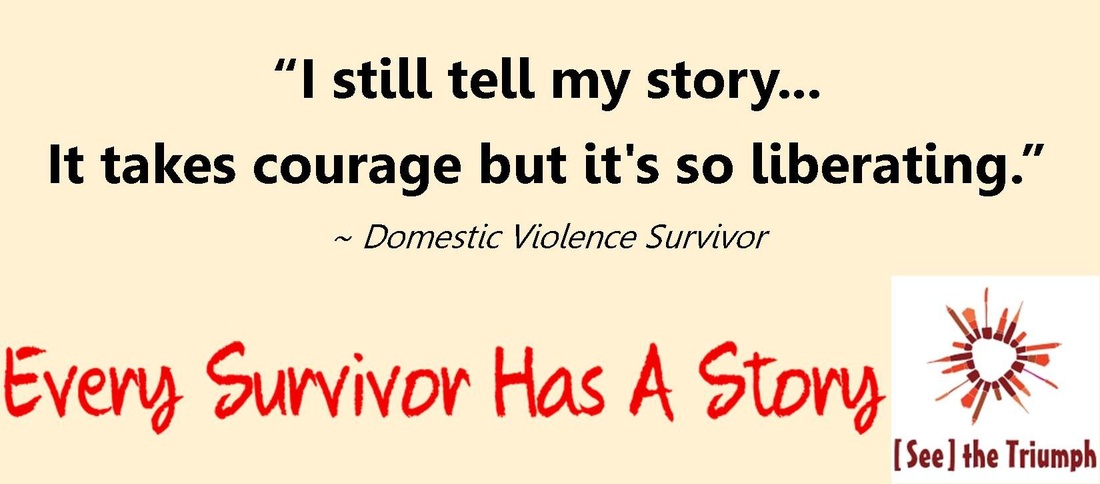|
By Christine Murray, See the Triumph Co-Founder
We learned a lot from the participants in our research about the many ways that people can share their stories. We want to emphasize that there is no one “right way” to do this. Your story is your own, and you should only tell it in ways that are comfortable, safe, and meaningful for you. For some people, this means speaking publicly about past experiences with abuse. However, there are many reasons why a person may not want to do this, and those reasons are valid--especially when safety risks are involved. There are many other ways that people can tell their own stories that may or may not involve sharing with anyone else. Following are a few examples of the various ways that participants shared with us that they told their stories. One of the most personal ways to tell one’s story is through writing it down, such as through keeping a journal. One participant said, “I mentioned before that I am a writer. Writing about the experiences has helped me process them...Processing the abuse in my own time has allowed me to understand that it was not my fault and allowed me to personally overcome the stigma of abuse in my own mind.” Other people may find it empowering and helpful to tell their stories to people who are close in their lives, or in a confidential setting like counseling. For example, consider the following quotes:
For some, speaking publicly is an empowering way to have their story help educate others. Here are some great examples of this from participants in our research:
Of course, regardless of how or when survivors tell their story, it’s important for them to be the one to make these choices. Some of the participants in our research emphasized the importance of sharing when the moment is right:
Comments are closed.
|
Archives
July 2024
CategoriesAll About Intimate Partner Violence About Intimate Partner Violence Advocacy Ambassadors Children Churches College Campuses Cultural Issues Domestic Violence Awareness Month Financial Recovery How To Help A Friend Human Rights Human-rights Immigrants International Media Overcoming Past Abuse Overcoming-past-abuse Parenting Prevention Resources For Survivors Safe Relationships Following Abuse Schools Selfcare Self-care Sexual Assault Sexuality Social Justice Social-justice Stigma Supporting Survivors Survivor Quotes Survivor-quotes Survivor Stories Teen Dating Violence Trafficking Transformative-approaches |
Search by typing & pressing enter



 RSS Feed
RSS Feed